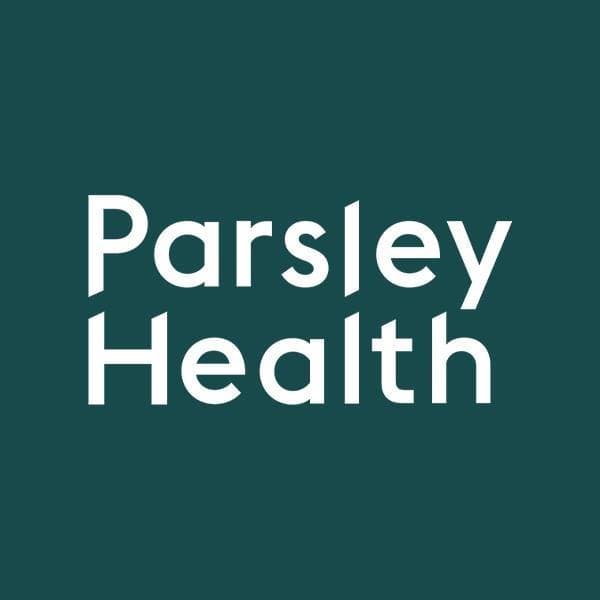Blood tests can tell us a lot about our health. By looking at certain markers in our blood, doctors can predict if we might have health issues in the future. This article will talk about the top 5 blood markers that can help predict future health problems and how to test for them. These tests are easy to get and can give us important information about our heart and overall health.
Key Takeaways
- C-Reactive Protein (CRP) is a marker for inflammation in the body and can help predict heart disease.
- Hemoglobin A1C measures average blood sugar levels over a few months and is used to diagnose diabetes.
- NT-proBNP is a hormone that indicates stress on the heart and can predict heart failure.
- High-Sensitivity Troponin T detects small amounts of heart muscle damage and will soon be available for broader use.
- A Lipid Panel measures cholesterol and triglycerides to assess the risk of heart disease.
1. C-Reactive Protein
C-Reactive Protein (CRP) is a substance produced by the liver in response to inflammation. High levels of CRP in the blood can indicate inflammation, which is linked to various health issues.
Why It's Important
CRP is a marker that can help predict the risk of cardiovascular diseases such as heart attack and stroke. Elevated CRP levels have also been associated with type II diabetes and age-related macular degeneration.
Optimal Ranges
| Gender | Current Reference Range | Optimal Range |
|---|---|---|
| Male | 0-3 mg/L | <0.55 mg/L |
| Female | 0-3 mg/L | <1.5 mg/L |
How to Test
A high-sensitivity CRP (hs-CRP) test is used to measure low levels of CRP in the blood. This test is more precise than the standard CRP test and can detect smaller increases in CRP levels. The test should be done twice, two weeks apart, to confirm results.
Regular CRP testing can help you and your doctor devise a strategy to manage inflammation through diet, exercise, and possibly supplements.
What to Do If Your Levels Are High
If your CRP levels are elevated, you may want to discuss with your doctor the use of anti-inflammatory therapies, such as fish oil, L-carnitine, and soluble fiber. Lifestyle changes like a balanced diet and regular exercise can also help lower CRP levels.
2. Hemoglobin A1C
Hemoglobin A1C (HbA1c) is a crucial marker for assessing long-term blood sugar control. This test measures the average blood sugar levels over the past two to three months, providing a more stable indicator than daily glucose tests. It is an independent predictor of heart disease risk, whether or not you have diabetes.
Optimal Range of Hemoglobin A1C
| Current Laboratory Reference Range | Optimal Range |
|---|---|
| 4.5-5.7% | <4.5% |
Importance of Monitoring HbA1c
Regular monitoring of HbA1c levels is essential, especially for those with diabetes. The American Diabetes Association recommends testing every three to six months. This helps in adjusting treatments and managing blood sugar levels effectively.
Benefits of Maintaining Healthy HbA1c Levels
- Reduces the risk of cardiovascular events
- Helps prevent complications related to diabetes
- Provides a more accurate picture of blood sugar control
Long-term high blood sugar levels can increase the risk of heart disease and stroke. Keeping HbA1c levels in check is vital for overall health.
Nutritional Therapies
Discuss with your doctor about incorporating nutritional therapies like chromium, cinnamon, and coffee berry extracts to help optimize your HbA1c levels.
3. NT-proBNP
NT-proBNP stands for N-terminal pro b-type natriuretic peptide. This protein is made in your heart and is found in your blood when there’s extra strain on your heart. High levels of NT-proBNP are linked to a higher risk of heart and blood vessel disease.
What NT-proBNP Does
NT-proBNP helps your body get rid of extra fluids, relaxes blood vessels, and moves sodium into your urine. When your heart is under stress, it releases more NT-proBNP to help ease the strain.
Why Test for NT-proBNP?
Testing for NT-proBNP can help doctors figure out if shortness of breath is due to heart failure. It can also be used to monitor how well treatments for heart failure are working.
Ideal NT-proBNP Levels
The ideal result for NT-proBNP is less than 125 pg/mL. If your levels are high, your healthcare provider will discuss ways to reduce your risk of heart problems.
How to Test for NT-proBNP
- Blood Sample: A simple blood test is used to measure NT-proBNP levels.
- Lab Analysis: The blood sample is sent to a lab for analysis.
- Results: Your doctor will review the results and discuss any necessary steps.
Monitoring NT-proBNP levels can be a key part of managing heart health, especially for those with heart failure or at risk of heart disease.
4. High-Sensitivity Troponin T
High-sensitivity troponin T (hs-TnT) is a protein found in heart muscle. This test helps doctors diagnose heart attacks and assess the risk of heart disease. Even small increases in troponin T levels can indicate heart muscle damage, even if there are no symptoms.
How to Test for High-Sensitivity Troponin T
- Blood Sample: A healthcare provider will draw a small amount of blood from a vein, usually in your arm.
- Laboratory Analysis: The blood sample is sent to a lab where it is analyzed for troponin T levels.
- Results: Elevated levels of hs-TnT can indicate heart muscle damage and a higher risk of heart disease.
Regular testing for hs-TnT can help catch heart issues early, even before symptoms appear. This can be crucial for timely treatment and better health outcomes.
5. Lipid Panel
A lipid panel measures the levels of specific fat molecules, known as lipids, in your blood. This test is crucial for assessing your risk of heart disease and other health issues. Most lipid panels include the following components:
- HDL cholesterol: Often called "good" cholesterol, it helps remove excess cholesterol from your bloodstream.
- LDL cholesterol: Known as "bad" cholesterol, high levels can lead to plaque buildup in your arteries.
- Non-HDL cholesterol: This includes all the bad types of cholesterol.
- Triglycerides: A type of fat in your blood that can increase your risk of heart disease if levels are too high.
Ideal Lipid Panel Results
| Lipid Biomarker | Optimal Level (mmol/L) |
|---|---|
| HDL cholesterol | > 1.2 |
| LDL cholesterol | < 3 |
| Non-HDL cholesterol | < 4 |
| Triglycerides | < 1.7 |
| Total cholesterol:HDL | < 4 |
How to Test for Lipid Levels
- Fasting: You may need to fast for 9-12 hours before the test to get accurate results.
- Blood Draw: A healthcare provider will take a blood sample, usually from a vein in your arm.
- Lab Analysis: The sample is sent to a lab where it is analyzed for the different lipid components.
- Results: Your doctor will review the results with you and discuss any necessary lifestyle changes or treatments.
Regular lipid panel tests are essential for monitoring your heart health and taking preventive measures against cardiovascular diseases.
Conclusion
In summary, keeping an eye on key blood markers can give you a heads-up on potential health problems before they become serious. Tests like the 12-lead EKG, coronary calcium scan, and blood tests for C-reactive protein, NT-proBNP, and high-sensitivity troponin T offer valuable insights into your heart health. Most of these tests are already available, and the high-sensitivity troponin T test will be accessible soon. By regularly monitoring these markers, you can work with your doctor to catch issues early and take steps to stay healthy. Remember, understanding your blood markers is a powerful tool in maintaining your overall well-being.
Frequently Asked Questions
What is C-Reactive Protein and why is it important?
C-Reactive Protein (CRP) is a substance produced by the liver in response to inflammation. High levels of CRP in the blood can indicate inflammation, which may be a sign of heart disease, infection, or other health conditions.
How is Hemoglobin A1C tested and what does it show?
The Hemoglobin A1C test measures your average blood sugar levels over the past 2-3 months. It's done through a simple blood test and is used to diagnose and monitor diabetes.
What does NT-proBNP indicate about heart health?
NT-proBNP is a hormone released by the heart when it is stressed or damaged. High levels can indicate heart failure or other heart-related issues. It is measured through a blood test.
What is High-Sensitivity Troponin T and when will it be available?
High-Sensitivity Troponin T is a marker used to detect minor heart muscle damage. It is more precise than regular troponin tests and will be available soon for broader use.
What is included in a Lipid Panel test?
A Lipid Panel measures the levels of different fats in your blood, such as HDL (good) cholesterol, LDL (bad) cholesterol, and triglycerides. It helps assess your risk for heart disease.
Are these blood tests widely available?
Most of these blood tests, like CRP, Hemoglobin A1C, NT-proBNP, and the Lipid Panel, are already available. High-Sensitivity Troponin T will be available soon.
























